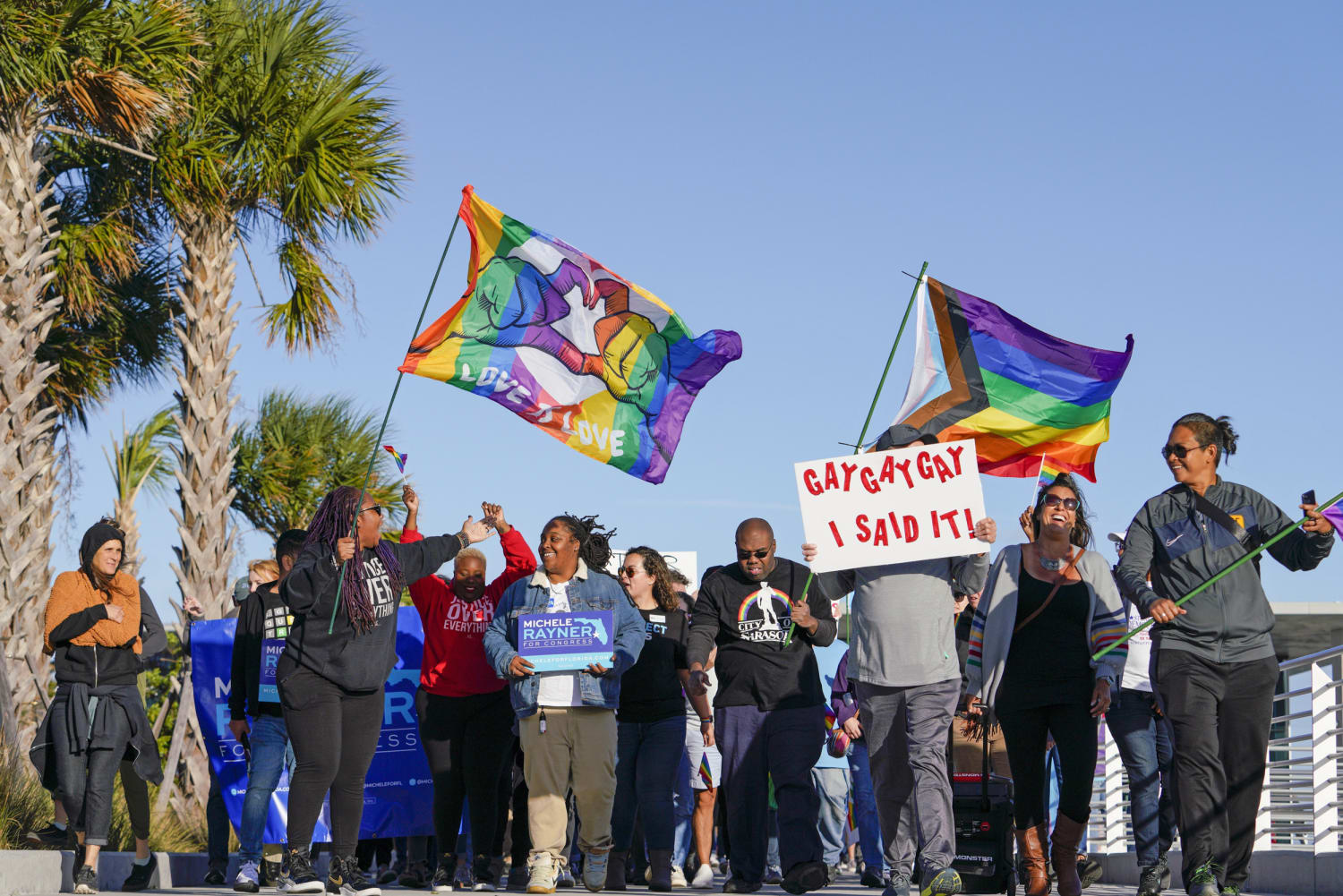On March 28th, the Parental Rights in Education Bill was signed into a law by Florida Governor Ron DeSantis. This piece of legislation is otherwise known as the ‘Don’t Say Gay’ bill.
The bill was passed by Florida’s Senate on March eighth and pushed to the Governor. DeSantis’s controversial law will go into effect on July first of this year.
This bill states that “sexual orientaion or gender identity may not [be taught] in kindergarten through grade three, or in any manner that is not age-appropriate or developmentally appropriate for students in accordance with state standards,” according to ABC News.
This bill also states that it would prohibit the discussion of sexual orientation and gender identity in a specific manner or in certain grade levels.
“The bill is purposefully vague. Some of us have been teachers and we should listen to them because they’re the experts,” Florida State Senator Tina Polsky said.
With the increased attraction in media, the bill gained it’s nickname ‘Don’t Say Gay bill” after proposer of the bill denied the use of LGBTQ+ specific terms.

On March seventh, the senate floor debate took place in the State Capitol building in Tallahassee, Florida.
“If we’re going to go as far as to ban any instruction of these concepts in K-3 and elsewhere, if not appropriate, then we should at least know what we’re talking about,” Polsky said.
Defining the terms ‘heterosexual, homosexual, and bisexual’ could clear up what the bill is banning.
“[The bill] doesn’t use those kinds of terms. So I don’t know how we got that the bill’s about all that,” Republican State Senator Dennis Baxley said.
The idea of the name ‘Don’t Say Gay’ was sparked from the March seventh debate between Polsky and Baxley and the lack of the use of the term “gay” in the debate.
Supporters of the bill seem to imply that it will essentially ban the casual conversation of LGBTQ+ topics in the school environment.
The argument from people in opposition to the bill is that banning the conversation of LGBTQ+ topics will make LGBTQ+ youth feel unwelcome and unsafe in schools. These students are already vulnerable to bullying and harassment.
“I don’t think y’all understand how much courage it takes for these children to show up everyday,” State Senator Shev Jones, the first openly gay man on Florida’s Senate, said.
While opposition to the bill argues that banning the conversation will make children feel less safe coming to school; many teachers also believe that it is an attack on children’s education.
“Honestly, I feel like it’s just a blatant attack on education. A lot of these bills are written by people that have never set foot in a public education classroom,” a Florida eighth grade teacher, Jorje Botello, said.
Botello, like many other teachers, believe education should involve lessons on LGBTQ+ to help empower LQBTQ+ students.
“When you look back in history, there’s clear examples of how these different groups that are being attacked today actually helped form our country. They’re a part of our story,” Botello said in an interview with NPR.
Teaching inclusively under the new law will be more difficult according to Botello.
“I know that I have to think a little harder when I navigate [these subjects] next year, now that this bill is gonna be in effect,” Botello said.
Other teachers are concerned about navigating around students’ home lives and giving support when the topics are no longer allowed in the classroom.
“It makes me wonder, when I talk about families in my classroom, am I going to be violating this law because the children were having discussions about what their family looks like?” first grade teacher Paula Stephens said.
Stephens told NPR that her first-graders are not concerned about sexual orientations.
“[They are more concerned about] is it snack time?” Stephens said.
Stephen fears that banning the conversation in K-3 will not be the end of it.
“If they’re going after this conversation now, where does this stop? […] I’m very fearful that this law is going to just open it up for a lot more things to start being discriminated against,” Stephens said.
Other than just the view of the teachers, in this now restricted environment, the public view on this bill has been equally as controversial.

“The existence of LGBTQ+ people across Florida is not up for debate. We are proud parents, students, and teachers, and LGBTQ+ people deserve to exist boldly, just like everyone else,” Cathryn M. Oakley said.
Oakley is the State Legislative Director and Senior Counsel at the National LGBTQ Advocacy Group Human Rights Campaign.
“The Florida State Legislature is playing a dangerous political game with the health and safety of LGBTQ+ kids,” Oakley said.
Oakley is not the only one who strongly believes that this bill is putting LGBTQ youth’s health and safety at risk.
Art teacher Clinton McCracken at Howard Middle School Academy of Arts in Orlando is also concerned about the dangerous effects may have on students.
McCracken points out the survey from the Trevor Project, a non-profit suicide awareness and prevention organization, which found that 42% of LGBTQ youth seriously considered attempting suicide last year.
“I can tell you as someone who grew up as a gay boy, how real that statistic is. And how dangerous it is that these Republican legislators are playing with the safety of our vulnerable youth,” McCracken said.
This bill has the potential to become a dangerous restriction in the classroom, and many in Florida are concerned to see the effect when it goes into effect on July first of 2022.

